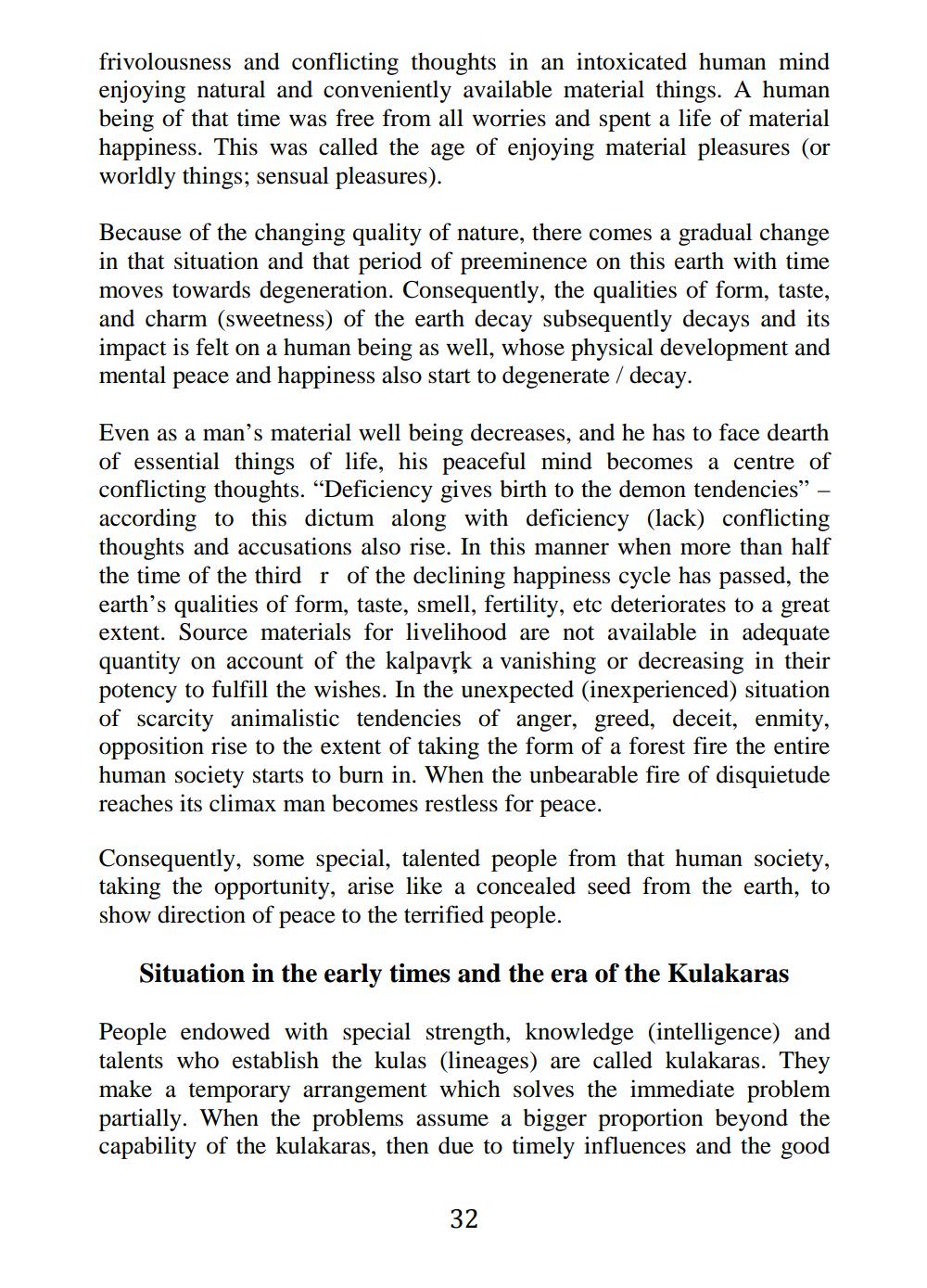________________
frivolousness and conflicting thoughts in an intoxicated human mind enjoying natural and conveniently available material things. A human being of that time was free from all worries and spent a life of material happiness. This was called the age of enjoying material pleasures (or worldly things; sensual pleasures).
Because of the changing quality of nature, there comes a gradual change in that situation and that period of preeminence on this earth with time moves towards degeneration. Consequently, the qualities of form, taste, and charm (sweetness) of the earth decay subsequently decays and its impact is felt on a human being as well, whose physical development and mental peace and happiness also start to degenerate / decay.
Even as a man's material well being decreases, and he has to face dearth of essential things of life, his peaceful mind becomes a centre of conflicting thoughts. “Deficiency gives birth to the demon tendencies” – according to this dictum along with deficiency (lack) conflicting thoughts and accusations also rise. In this manner when more than half the time of the third r of the declining happiness cycle has passed, the earth's qualities of form, taste, smell, fertility, etc deteriorates to a great extent. Source materials for livelihood are not available in adequate quantity on account of the kalpavřk a vanishing or decreasing in their potency to fulfill the wishes. In the unexpected (inexperienced) situation of scarcity animalistic tendencies of anger, greed, deceit, enmity, opposition rise to the extent of taking the form of a forest fire the entire human society starts to burn in. When the unbearable fire of disquietude reaches its climax man becomes restless for peace.
Consequently, some special, talented people from that human society, taking the opportunity, arise like a concealed seed from the earth, to show direction of peace to the terrified people.
Situation in the early times and the era of the Kulakaras
People endowed with special strength, knowledge (intelligence) and talents who establish the kulas (lineages) are called kulakaras. They make a temporary arrangement which solves the immediate problem partially. When the problems assume a bigger proportion beyond the capability of the kulakaras, then due to timely influences and the good
32




